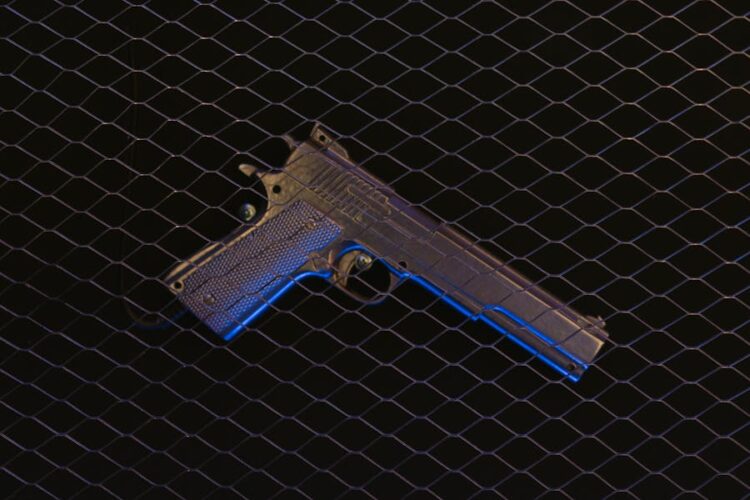Firearm sales in the US are governed by various sets of laws. Depending on where you live, you have to reckon with federal, state, and even county or municipal ones for the transaction.
Federally licensed gun dealers obviously familiarize themselves with those laws to operate. However, private gun owners will often be unaware of them.
This can make selling guns as a private (unlicensed) seller relatively dangerous. There are myriad penalties in the different states for violating firearm sale legislation.
This list of key points to review should help. These are relevant for firearm sales in every state:
Background Check Rules
States differ on the background check requirement.
For instance, Connecticut requires them for all gun buyers because of a law requiring them at the state level (CT Gen Stat § 29-36l). On the other hand, Texas has nothing in its laws requiring them at the state level.
This means the only gun buyers who go through background checks in Texas are those who buy guns from a federally licensed dealer. That’s because those dealers are bound to follow the GCA or Gun Control Act, which requires them at the federal level.
The rule for private gun sellers is thus to see if background checks are mandated at state level. If not, they don’t need to have their buyers undergo a check.
Prohibited Weapons or Items
States also differ on what guns or gun accessories are legal to sell. This is why gun sellers also need to check that what they have is legal before even listing it for sale.
For instance, Penal Code § 32310 forbids the sale of large-capacity magazines in California. This means anyone selling guns with such magazines in the state should remove them from the sale bundle to keep the transaction legal.
Obviously, the federal prohibitions apply to every state. NFA or National Firearms Act items like short-barreled shotguns and short-barreled rifles are regulated all over the US.
Disqualified Buyers
Each state follows two lists of buyer disqualifications when it comes to gun sales. These are the prohibited persons list from the federal GCA and the state’s list.
More often than not, these two lists will feature heavy overlap. However, some states will also add new disqualifiers to the GCA’s list, so sellers should still check the local list. The local list can even make the prohibitions stricter.
For example, the GCA prohibits sale of guns to people “convicted in any court of a crime punishable by imprisonment for a term exceeding one year.”
New Jersey’s prohibitions in N.J. Stat. Ann. § 2C:39-7 forbid sale of guns to anyone convicted of a “crime,” however. New Jersey defines a “crime” as a case where someone is sentenced to imprisonment exceeding 6 months.
This makes New Jersey’s prohibitions stricter than the GCA ones, at least in that area.
Private Buyer Age
When selling guns to private parties (others who also aren’t licensed gun dealers), sellers should ensure that they meet minimum age laws. Different states also have different prescriptions here.
For example, Louisiana’s minimum age for gun buyers is only 18 (RS 14:95.8). For comparison, Colorado’s minimum age for buyers is 21 (SB23-169).
Private Buyer Residency
If selling to a private buyer, this is another consideration. If the buyer resides in a different state from the seller, another level of complication is added to the process.
Generally, private sellers can sell guns to private buyers residing in the same state as them. So, for example, a Texas resident can sell guns to other Texas residents. This is assuming nothing else renders the latter ineligible for gun possession.
Even in states where direct private sales aren’t allowed, something similar happens. A California resident can still sell guns to other California residents. The main difference is just that he needs a local gun dealer to process the sale for him.
Now let’s say a California resident wants to sell a gun to a Texas resident. This is where new steps have to be taken.
The ATF or Bureau of Alcohol, Tobacco, Firearms, and Explosives calls this an interstate gun sale. For it to be legal, the seller must take the following steps:
- Ship the gun to a federally licensed gun dealer in the buyer’s home state.
- Have the buyer complete the requirements through the dealer receiving the gun.
- Wait for the buyer background check and sale processing to complete.
Private Buyer State-Required Cards
These don’t apply to every state. However, it’s useful for sellers to check if their state happens to mandate them before they start looking for private buyers.
This way, they can immediately disqualify anyone who doesn’t have the relevant cards. Even if they say they plan to get them, it can still help sellers avoid lengthy delays.
A good example of such cards is the FOID or Firearm Owners Identification mandated by Illinois. Only those who have them can legally own either guns or ammunition in the state.
California has another example, although its requirement serves less as an ID than as proof of the buyer’s capability to handle a gun. It’s called the FSC or Firearm Safety Certificate.
Gun Dealer Licensing
Many gun owners find it easiest to sell used guns to federally licensed dealers instead, because the dealers manage most of the legalities for them. However, there may still be legal points to double-check with these.
The key one is to ensure that the dealer is actually a legitimate one. The easiest way to do this is to find out if he’s a federal firearms licensee, also called an FFL. The federal license is proof of the dealer’s authenticity.
You can ask most dealers to supply proof of their FFLs. For instance, nationally operating gun dealers like Cash for Arms will provide evidence like their FFL number when asked. Doing this assures the seller that the business buying his gun and the process they use is legal.










